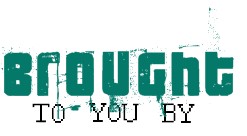Press Pause Radio Interview: Freebird Games
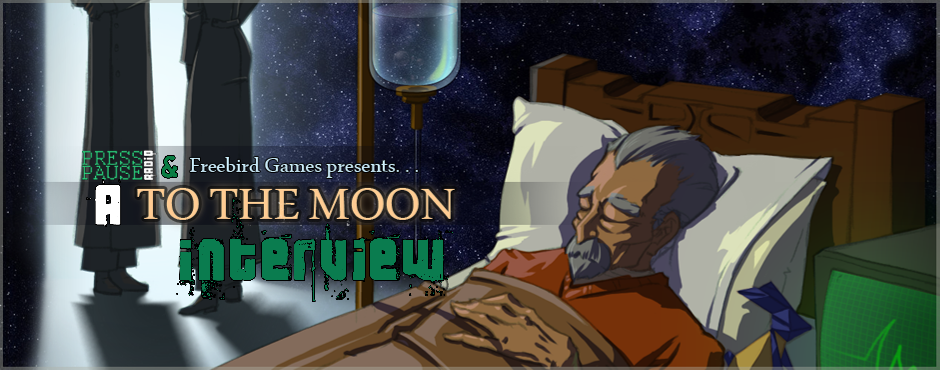
Hey everybody! Here to ring in the new year of 2012, we bring to you our newest interview with independent developer and publisher Freebird Games with Head developer/president Kan Gao in the interview seat this time around. We’ll be interviewing them on their newest game To The Moon, and the development process that went into this charming game, as well as the future of Freebird games.
You guys can find the whole interview written here on the site or simply go listen to it in our podcast feed as a special New Year’s edition episode! Be sure to visit http://freebirdgames.com/ and try out the game yourself for free with its hour trial. Without further ado, here’s our interview!
* * *
George: Welcome everyone to our newest interview, here within our series of efforts and endeavors of sorts, to go ahead and shed some spotlight on some leading, hottest... hot; lead hot, all those good things you could say about these awesome independent developers that we come across. In this interview, we’ve gotten the opportunity, and by the way we again would like to thank them for taking the time out of their day to do this, have the pleasure of speaking with Freebird Games.
In this interview, it’ll be myself, and the handsome (and the only reason you should even listen to this podcast) Andrew, Toasty-man. Handshoe-Toast.
Andrew Toast: I love that I’m handsome but this is really just an audio presentation of me, but I’m sure everyone can use their imagination…
George: Go to the “About” page on our website! He’s a good looking man; I’m telling you guys, you just don’t know what you’re missing out on. Yours truly will be joining in as well. And with us, we are joined by spokesperson, director... well actually, what is your role with Freebird Games, Kan? I didn’t even stop to really ask you that.
Kan Gao: I wear many hats, really. I am a hat maker.
(Andrew chuckles)
George: Hey! That’s good!
Andrew: Official title on business card (chuckles)
Kan: Hmmm yes, exactly.
George: Ha ha well yes, ladies and gentleman, again, you are listening to Kan, the uhhh...hat maker of Freebird games, and thanks again for joining us. Let’s start this off with you going over the genesis of Freebird games. How did you exactly come about? The details of the birth of your company, if you will.
Kan: Well, it was a dark and stormy night, and well... I was writing what I guess what you would call an “emo” novel; I suppose it’s the sort of thing you write in high school. It was then, after I got further into writing the novel that I thought about how cool it would be if this story was presented through and audio and visual form. I began to look up game development and what not and everything really started from there.
Andrew: Very humble beginnings.
Kan: indeed. (chuckles)
George: So was it just you Kan?
Kan: Yeah, pretty much was. Well actually, I take that back. There was a friend that I had who helped me with writing the music, but one summer he did something terrible...AKA he went on vacation and I really needed some new music for our current project, so I just continued the work myself and began to write the music.
George: Oh man, you Trent Reznor'd the development, that’s pretty insane!
(Kan Chuckles)
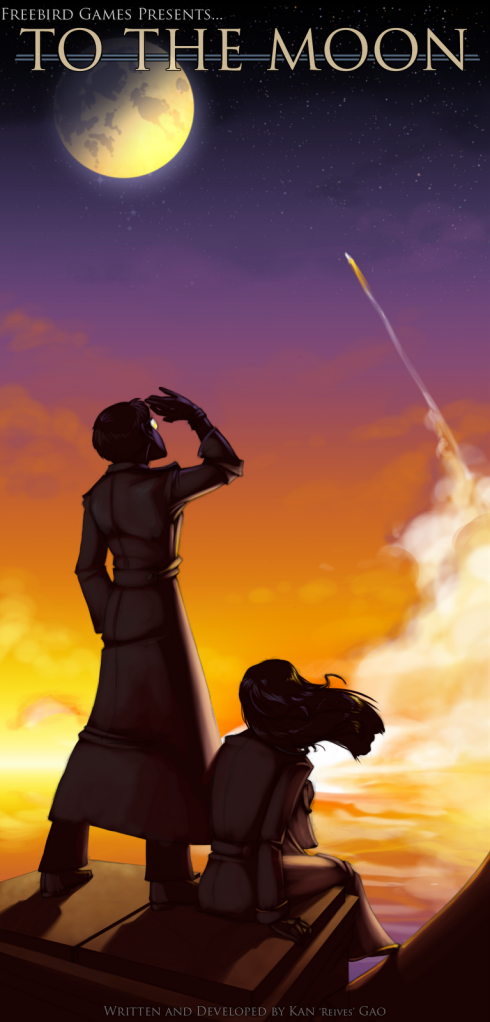 Andrew: So of course, we’re speaking with you today, not only about the development of Freebird Games, but the story behind your newest release titled, To The Moon, and I just want to go ahead and touch base on that and ask particularly about the development of that title as far as what kind of development tools have you used, and how long was the production of it?
Andrew: So of course, we’re speaking with you today, not only about the development of Freebird Games, but the story behind your newest release titled, To The Moon, and I just want to go ahead and touch base on that and ask particularly about the development of that title as far as what kind of development tools have you used, and how long was the production of it?
Kan: The game is actually made with the notorious game making engine known as RPG Maker, I suppose because it has a very easy point of entry for new developers who break into to developing their first games -- especially for medieval themed standard RPGs. I honestly think it’s a fantastic tool though, actually. It’s a little underrated for what its capable of, and over-hyped all at once because of that point of entry I mentioned earlier.
I’ve been using it to make all of our games in the Freebird library for the past five years, and the actual process of using it can still vary from day to day. I have a lot of people who are really talented, and I’m fortunate to have their help. But as far as actual hired help goes, it's really just me. So with all of the things to account for in the development, the familiarity with the tool helps me build a routine that’s easy to follow, like when I wake up the next day and tell myself “Ok, I need to fix up these sprites today, and then there’s the music to be written so I can finish this scene.” All in all it’s a great that the tool accommodates my mood for what I’m feeling, and its flexibility responds rather well.
Andrew: Sounds like it would still lead to pretty long work day though even still.
(Kan Chuckles)
Andrew: That sounds amazing though. Honestly, I just like how you mentioned that with using RPG Maker, the barrier of entry is really low. But with the attention details with your games, you honestly wouldn’t even be able to tell, especially with TTM.
I’m honestly just blown away with the knowledge of knowing that a tool set like that -- with easy to use yet difficult to master -- can have you guys come out of nowhere and churn out a game that looks nothing like the usual stuff we’ve seen produced from that very tool set. That’s just such a surprise to me. Just knowing that boggles my mind, and seeing what you guys accomplished using something that I never thought would be able to pull it off. Really, hats off to you guys.
Kan: Thank you. (chuckles)
George: Wow that is impressive, so RPG Maker XP? And this is incorporating the same engine capabilities you would see from the console versions of RPG Maker, right?
Kan: Hmmm, I think so. I’m not too familiar with the console version of it. Aren’t they 3D?
George: The original one for PlayStation is two-dimensional.
Kan: Ahh, ok then.
George: Yeah, they both look very similar, so it may be the same thing. But again, that just really blows my mind. There’s a certain inherent detail with the graphics that just spoke to me on different levels that made me nostalgic for some classic games for the generation of games I’m sure you paid homage to within the visuals, and it shows. Soul Blazer and Chrono Trigger always come to mind when I look at To The Moon, especially Chrono Trigger, you can definitely see its influence within the style of the game.
Kan: (chuckles) Yes, that comparison comes up quite a bit.
George: Speaking of the concept behind your games, I really want to know, regarding To The Moon, how did you exactly conceive the concept? The way we interpreted it as best as possible (and please some confirmation would be cool, or any new information we’re missing, shit you can just tell us we’re wrong), I got this cross reference of Assassin’s Creed and the movie Inception when playing the game.
Is there something we’re missing, or are we close to point? Please explain the direction to our vibes!
Kan: (laughs) Well, Inception was released when the game reached its halfway point in development. The movies that helped influence the concept were Eternal Sunshine of The Spotless Mind, and well, oh...what was that movie again? Ah yes, the Pixar film UP also had a part in it as well.
George: Yeah the Eternal Sunshine references didn’t go unnoticed; the inception comparison really spoke to me the moment I felt as if I was going into memory that’s traveled to within a memory, inside of another memory. The process of climbing through these memories, and that there was a process of rules that applied to the manner of travel to and there was cognitive process behind it just felt equivalent to Christopher Nolan’s logic behind Inception’s dream-hopping.
Kan: I see.
George: Yeah like Inception has dream-hopping, and then TTM has memory hopping. The Assassin’s Creed comparison deals with the Animus component in its narrative, which also deals with memories.
Kan: Yeah, I totally see that too, although I was really surprised because I had no idea being as that I have never personally played Assassin’s Creed before, I mean it is on the list. Don’t get me wrong, and I do look forward to trying it out. For the longest time though, I had no idea that Assassin’s Creed had that dynamic of the memory travel through modern day technology, I just assumed that the game was medieval themed game where the setting naturally took place there. As I found out I was taken back a bit and found myself saying “Whoa, this sounds really familiar.”
Andrew: I remember Ubisoft tried concealing it for the longest time until right before the game was just released and everyone had mixed feeling towards it like “oh, really?”
Even now, it’s still a bit of a bizarre twist. I want to make note of when you mentioned the movie UP, though having loose inspirations towards TTM that just worries me, greatly even. I have yet to finish the game from my play of it so far, but hearing that…I literally lost it watching UP and I feel like this game is probably going to have a similar effect. Just from gearing that first note, I find myself saying “oh no...” I just have a feeling with it. I’m the kind of person that appreciates a great story within a game, I think story overcomes pretty much every other component within a game, I mean if it doesn’t have a great story then it’s just mind-less button mashing. A game just isn’t worth playing if doesn’t have a great story, and if that game incites any sort of the same feelings I felt in UP then I’m in trouble. (laughs)
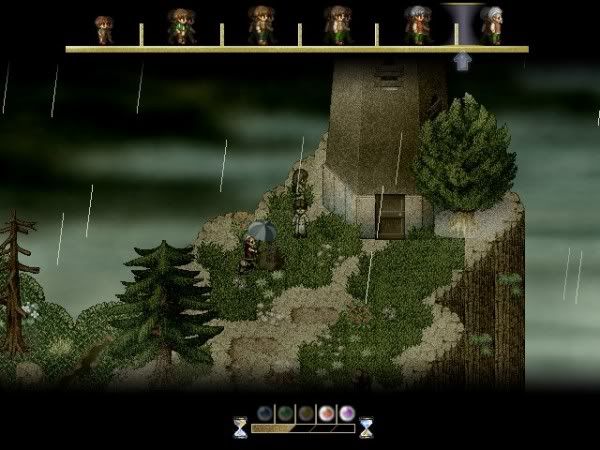
Kan: It is one of those games where the payoff is at the end; I mean it’s hard to go into it without spoiling it.
Andrew: Of course.
Kan: But yes, your tears are delicious, and we love to taste them.
(Andrew boisterously laughs)
George: I have to say going in, I already found myself choked up, and I’m only an hour in! So I can only imagine, but you know what? I never really put two and two together, and I definitely don’t want to spoil UP for anyone which, by the way, is one of the most remarkable Pixar films you could ever watch, and it’s incredibly underrated, especially in comparison to the overrated duds in Pixar’s library like Ratatouille and Cars (shame on you all of you who watched the pair in the latter instead of the star in the former).
Anyway, I can definitely draw a contrast from the protagonist in UP and his conflict to how you incorporated that to the concept with your character within TTM. It’s awesome, though. Thank you. I feel like that was just the insight I was missing.
Andrew: I also want to touch base on the fact that this is a serious tale, and the emotions it portrays are quite real. However, I love how you guys -- at the same time -- can take it from heart-wrenchingly sad to rib-splittingly funny, especially in the writing. I mean it is a text based game, there’s no voice acting within the game, and I prefer it that way. Having actual voice work may ruin the experience, as it retains its charm rather well in the minimal text-based approach. The dialogue speaks for itself when you guys have the talent to make it funny, even with the timing of it in its delivery. Your Homepage even shows you poking fun at yourself with the “box quotes” regarding TTM, and you found a way to finish the last one with a reference to Flight of The Conchords, just stuff like that you guys show a real knack for.
With that said, I have to ask... is it hard for you guys to incorporate humor like that into the dialogue? Or do you guys do it because it is a serious story and you want to mix it up a bit and make it feel light hearted to balance out the melancholy in the narrative? We’d love to know how you guys strike up that balance.
Kan: Well I do write most of the dialogue really late at night so I’m sure that helps.
(Andrew laughs)
Kan: Honestly, at its core, the game has a really melodramatic story, So I felt it was really important not to get too wrapped up in…well, in its own pretension in a way (chuckles.) The way I look at it, there’s no one saying that you can’t make your narrative moving and fun at the same time so that was the best case scenario I was working towards in my portrayal in TTM.
Andrew: And I’m happy that you guys take the chance to do that, George and I were having a conversation before we contacted you for the interview and recording, and there are games that I can reference as far as real emotion goes, like Braid comes to mind for example and with no offense to the developer because I enjoy Jonathan Blow’s work quite a bit but the guy does come off a bit pretentious.
(Kan laughs)
Andrew: And hopefully, I’ll never get to talk to him in person with all of the mean stares I would get (chuckles.)
Kan: Well it is on the record now.
Andrew: Oh crap, yeah, I probably shouldn’t have put that out there on the internet but I like how you guys can tell that kind of story and take that risk, but you’re not gloating about the fact that you are. You guys are having fun with it, and the tongue-in-cheek humor is cleverly done... I appreciate that. You don’t see a lot of that from any developers, indie or otherwise.
George: I think at one moment that I would like to touch on, and it’s in your trailer so I’m not going to spoil much of anything really is there’s a moment, and what’s funny is that we’ve gone into so much detail, but we never really touched base on the premise of the game, in case our listeners/readers never really got to check that out. Essentially, TTM stars two doctors from a foundation, that basically, through methods that are comparable to the tech seen with the Animus or machines within Eternal Sunshine of The Spotless Mind, are able to grant their clients their life’s greatest wish on their deathbed mentally through their memories. This practice lets their client die happy, being content that they were able to accomplish what they wanted out of life before dying.
In doing so within the story, the two doctors are seeing the patient the game centers around, and as they’re greeted by his caretaker and her kids. One of the first objectives is to collect as much intel as you can to help start the process the doctors initiate getting into the old man’s head. As you travel around with the kids who are gallivanting and playing about, they start talking about how they enjoy roleplaying. This then move onto the next scene through pointing and clicking where you guys put the player within this stereotypical portrayal of a random turn-based battle with the doctor and the kids again some f**cking squirrel and as you point a familiar menu set-up in this kind of scenario, the kids start crying foul, screaming “what are you doing? We’re going to call PETA on you!” as the doctor defends his actions stating “what? I thought you kids liked Roleplaying?”
(The group laughs)
George: Clicking through a familiar drop down menu for a random battle and playing along with the humor just really goes to show how none of the humor within the game feels contrived at all. I found myself legitimately laughing along, and the sensations of acknowledging the doctor’s embarrassment through this fourth-wall breaking joke, realizing that we’re playing a video game! This was brilliant; it was the one defining moment that bridged my involvement to immersion, which was a clincher that sealed the deal on the writing and how brilliant it was.
Kan: (laughs) Yeah, we all just try to have fun with it.
Andrew: Exactly.
George: You mentioned RPG Maker being the main tool behind the development and what was done despite the limitations, the most catching thing to me still are the visuals within TTM. That being said, we have a point-and-click adventure game with the visuals of a 16-bit graphic aesthetic giving off the vibe of it being your standard top-down action RPG. With comparisons again pointing to classics like Chrono Trigger, the game screams SNES.
Was it a conscious decision to present the game this way? And if so, what were the inspirations behind it? Again, setting aside the surprise we had with the tool set, was this look the one that you guys intentionally imagined from the get go?
Kan: Well, let’s see... I’m personally really fond of... well not so much necessarily the style, but the aesthetic of Chrono Trigger. However, I think on the foundation of things, what really led us to the direction the look in the first place was the uninspiringly yet easily accessible templates available within RPG Maker. Son, it’s simply a matter of building on top of a template that’s already there, and simply improve the structure into making something that you can now call your own.
George: I see.
Andrew: Understandably so as far as trying to work best within the limitations, and I think that’s what were just so surprised with, where the graphics definitely draw a Chrono Trigger inspiration, it still has a unique look to it to where you would easily assume that this was something completely produced from scratch. TTM doesn’t look like it was built on top of any template, and the game really takes on this whole new life all on its own. It becomes something that is entirely different than what I would have expected to have come out of anything from RPG Maker, or any tool set to be honest.
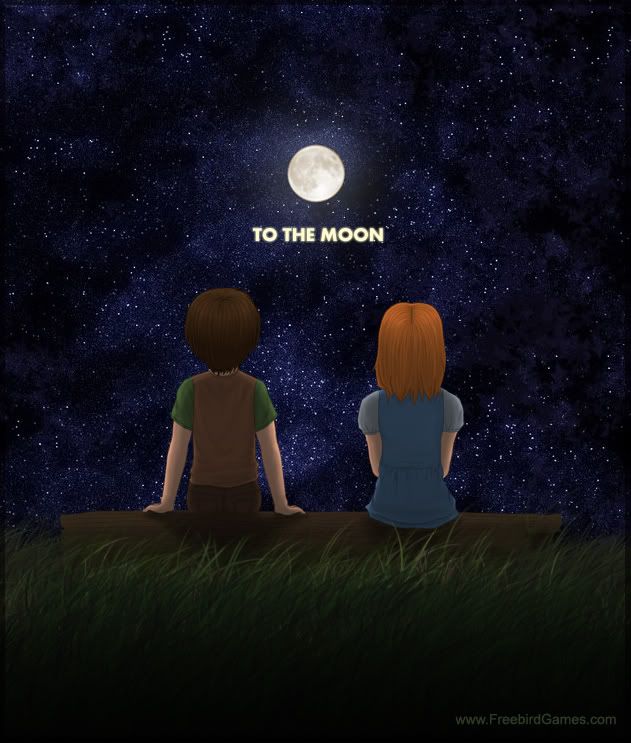 George: The main thing that I think we’ve really noticed and we really want to pay attention to, especially from the insurmountable amount of quality that I think just really attracted us to take notice with you game in the first place, is the humble yet in-depth presentation. There's a minimalistic approach where less was better, giving it such a simplistic appeal. And yet you can still notice this articulate design to where you see the labor of love that TTM was, especially with the knowledge we know in regards to its development... it’s just surprising... insane, really. I’m sorry, I’m taken back a bit, but I really don’t know what more to say.
George: The main thing that I think we’ve really noticed and we really want to pay attention to, especially from the insurmountable amount of quality that I think just really attracted us to take notice with you game in the first place, is the humble yet in-depth presentation. There's a minimalistic approach where less was better, giving it such a simplistic appeal. And yet you can still notice this articulate design to where you see the labor of love that TTM was, especially with the knowledge we know in regards to its development... it’s just surprising... insane, really. I’m sorry, I’m taken back a bit, but I really don’t know what more to say.
Andrew: I also want to touch base on this, and of course we’ve mentioned Chrono Trigger several times. Being an influence with in games past, what are some other games, or even media wise that have inspired you personally, with your talents in literature and music aside with writing, what was were some aspects that you drew from these different inspirations that helped you worked into TTM?
Kan: Well, let’s see...music wise, I’m a big fan of Misura and Uematsu, (chuckles) obviously; I’m also a big fan of Joe Hisaishi.
Uhh...(laughs) I think that’s how you pronounce his name? I haven’t really had the opportunity to pronounce it out loud so if you’ll forgive me (chuckles).
Andrew: (laughs) Got you, so what’s some of his work that you can cite?
Kan: Oh yes, he’s the guy who wrote some of the music for Laputa: Castle in the Sky, and he’s just regarded as a classic composer for several different animated productions.
Andrew: oh, ok.
Kan: As far as the writing is concerned, a lot of my writing style, well, at least what’s had a lot of impact in my approach towards writing the game’s dialogue is the novel A Hitchhiker’s Guide to the Galaxy.
Andrew: (laughs) really? Yeah, I can actually see that. It’s just one of those things where you don’t see games very often, and if anything I think it may be that you wanted to pursue something that had a balance of serious somber happenings in life, and yet still gives you something that you can laugh at. And after you mentioned Hitchhiker’s, it incites a feeling of smart comedy. I mean it’s not necessarily a sort of dry humor, but rather sharp and appreciated. In terms of music, I’m not too familiar with any music within animation or classic anime productions, but I can get that just from the animation that we’ve heard so far.
George: Yeah I’m not familiar with that composer, I’m sorry how do you pronounce it? Joe-si-a?
Kan: Ah it’s Joe Hisaishi.
George: Ok, yeah, I’ll have to remember to research him.
Kan: Indeed.
George: Well, going forward, with all of the praise that we’ve been singing with TTM, let’s just jump into some pretend time for a moment. If you can change anything with the development in regards to the game, using different resources or tools or any unused ideas, we’d like to know (even the smallest detail) If there was anything you could have done more or changed entirely in the design of TTM.
To elaborate, what would you have wished you could have done differently or what resources would you have liked to have used that would have helped your ideas overcome the limitations you had in your disposal?
Kan: I think the most fore front is the gameplay aspect. It has to do with a lack time on my part. If I had more time, I feel the gameplay could have been integrated a lot better instead of taking a backseat to the story. I had more plans as well. For example, in regards to the puzzles, there are mental puzzles that you solve in order to progress to the next memory... well the mental puzzles involve flipping tiles to reveal a picture and there is a suggested number of flips that the games suggests you use to get the best performance. However, there’s no real penalty for exceeding a number of flips or any reward for achieving the goal set for flips. I had intended to introduce a reward to make the effort much more significant that I had planned, but it had to be cut off because I was really stretching on my time limit with the production of the game.
Andrew: Well now that you mention it, in regards to the control in terms of actual gameplay, I really do appreciate the fact that since it is a point and click adventure game, if you want to play strictly with just your mouse, you can do that, and honestly that’s really all you need. I mean the tools at your disposal are very simplified to where are you do is a few clicks and that’s all you have to do.
Myself not being too much of a PC Gamer, focusing on the dual use of both a keyboard and mouse can sometimes be too daunting for me and with TTM, I can simply just right-click to bring up my menu and if I want to back out of it I can just right-click again. All of the essential functions are mapped to your left and right mouse buttons so I never felt like I had to stop what I was doing so I can stop and assert the control, and it allowed me to be immersed in the game even more.
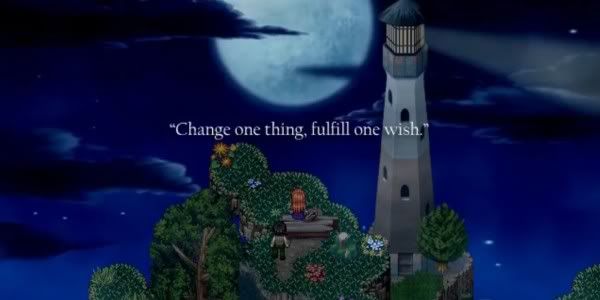
Kan: Well you haven’t finished the game yet so you’re not at that part yet, but there is a notorious part thanks in part to the control scheme. I believe it happens at the beginning of the third-act?
Andrew: Ah, foreshadowing.
Kan: Yes (chuckles), you should know when It happens, well... actually I don’t know because there are a lot of people who sent in critical feedback about it being the worst part of the game (chuckles)... well control-wise, and then there were a group of people who didn’t mind it so much, and it’s been a pretty stark contrast, so I haven’t figured out how to address the feedback yet. But I’m definitely determined to do something about it. All I can say is that it’s something about... zombies.
Andrew: Oh goodness (as he then busts into laughter).
Kan: (laughs) Yeah, I don’t really know exactly if that’s a spoiler or not because it’s so out there.
Andrew: Yeah, and now I definitely want to know what that means! Well this is probably going to be our last question, and I’m sure it’s a question you’ve been asked many times before. I apologize, but I’ll have to ask again for listener/readers at home. To The Moon, is currently a PC title. Are there any plans to release it on any other platform? I mean now that TTM is released are there any other games in development that Freebird see themselves jumping on or any plans to now bring TTM to portables even like a tablet or handheld console?
Kan: At the moment there are plans to port the game to MAC and Linux sometime next year but there are some technical constraints because of the whole RPG Maker aspect of it. I’ve been talking with a group of people though who have been working on a sort of something that might help so fingers crossed and let’s see how that goes next year. As far as new releases go, the next one planned for development is the next chapter in the arcing story that To The Moon fits into with it being the introductory chapter. Johnny dies at the end, just so you know, so I wouldn’t expect him to come back (chuckles)
Andrew: (laughs) yeah spoiler alerts (as he continues his laughter).
Kan: Oh well you know, I mean is that really a spoiler?
Andrew: Obviously (laughs).
George: Mind. Blown.
Andrew: Oh jeez.
(The group laughs)
Kan: Yes, but it’s a series that’s planned, where a game fills the role of an episode that has a new patient who’s memories are altered by the same two doctors which fits into the over-arching plot of the grand story. Each episode is a different life story, and it gradually fleshes the story connected between the two doctors to the over arcing plot.
Just to elaborate though that these new games in planning are not meant to be sequels, but instead will have these close ended stories with the involved patients without that purposeful dangling of any cliff hanger endings or anything like that.
George: I’m getting at what you mean. It’s similar to the plot pacing of an anime to where you’re essentially picking up more and more information about the doctors, and gradually getting to know them. But the focal point is on the conflict of the episode itself. So in other words, TTM is part of an episodic series.
Kan: Right, right, that’s the best way to put it, yes.
Andrew: Yeah, like it has its own universe. Now did you have plans, well rather, you had a title previously you made, I don’t remember exactly if it was the first episode, but I believe the title of it was the blighted venom?
Kan: Ah yes. Well, remember earlier when I mentioned that I was slowly turning this crappy novel into an interactive video game instead?
Andrew: is that what it is then?
Kan: Exactly, that would be the genesis of it. It’s still not finished unfortunately, but there are a total of fourteen chapters to finish it and eleven are already done, so a few more.
Andrew: Cool, and before we go, I have to ask, I understand that all of this really stemmed first from writing, that the games really all just evolved from your writing, do you have any plans on pursuing anything in literature? Like writing additional stories that you could supplement the narrative of your games even or something on its own merit. The writing in TTM is so sharp that I really wouldn’t mind reading anything you may have been work-shopping. I mean, I enjoy what I’ve seen in game form but I wouldn’t mind reading a book with the same sharp writing, anything like that in the works at all?
Kan: I’m sincerely glad you’ve enjoyed it, and I do have plans to one day write a serious novel. I actually have a prelude, if you will, for TTM all done within a written form that’s all posted to this blog that I don’t even have a button to on the website right now (laughs). I’m hoping to finish it soon though that I can then post about it.
Andrew: I definitely will have to look forward to it them, but I’ll keep in mind to do some digging on the internet and make sure I can get my hands on it sooner than later (chuckles).
George: I have a bit of an addendum to the previous question, being that you’re sticking with it being a PC games. Are there any plans on bringing it to Steam, Origin, or any of the major distribution/community sites for sale at all, or is it strictly going to be off of just the Freebird Games website?
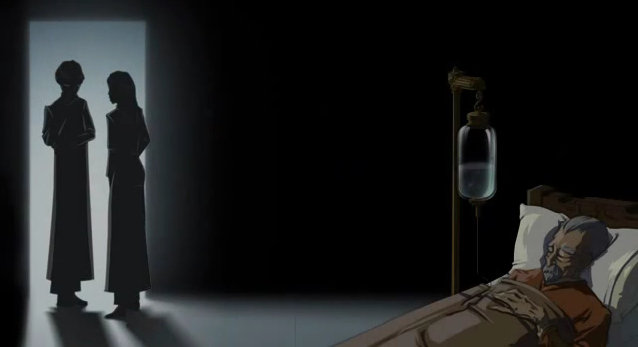
Kan: I’ve actually already submitted TTM to Steam for approval, so the ball is in Valve’s court, and we’ll see what directions they go with it.
Andrew: It’s definitely something that would motivate me to purchase the game twice. Hell, I’m on the website right now, and also to make one last note before this interview ends, you also purchase the soundtrack for TTM and half of the proceeds go to a charity as well, so it's win/win for everyone.
 Digital Distribution,
Digital Distribution,  Indie,
Indie,  Indie Games,
Indie Games,  PC,
PC,  SNES | in
SNES | in  Interviews,
Interviews,  Podcast
Podcast 



